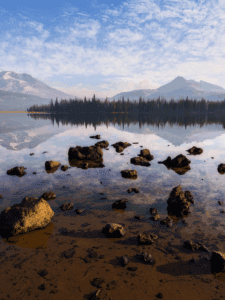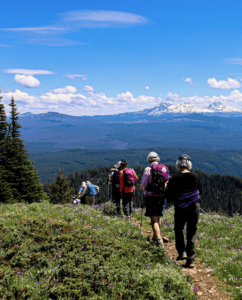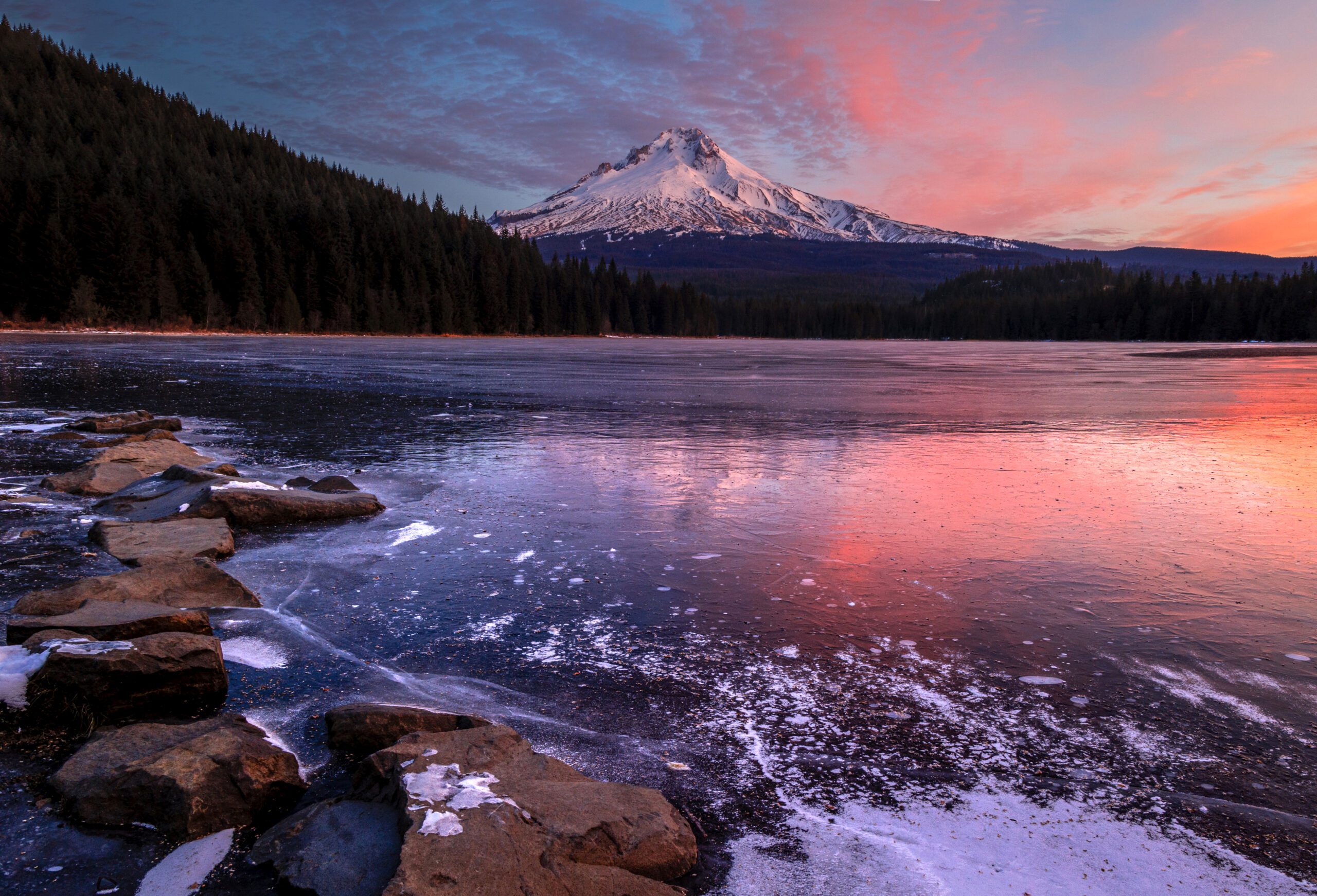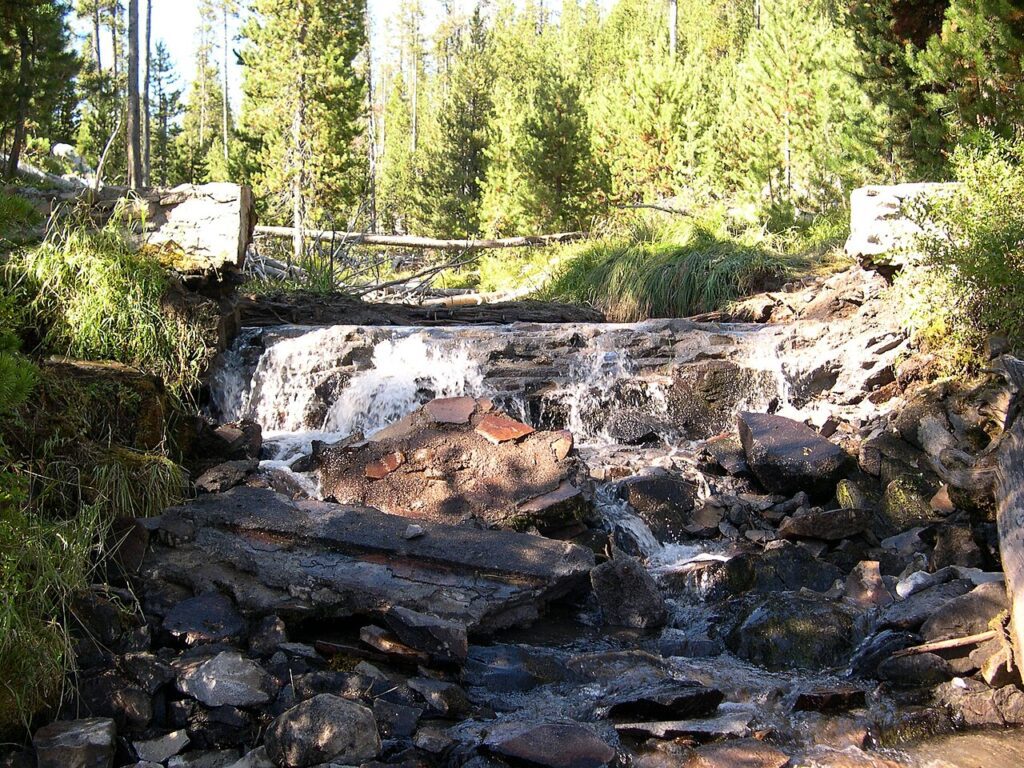America’s public lands–our National Parks, Forests, Wildlife Refuges, and Bureau of Land Management lands–have long been the common ground that unites us as a country. The bad news is that the division, chaos, and corruption that has marked the Trump 2.0 administration has spilled over in public lands policy, with so many attacks on basic conservation protections that it is hard to keep up.
Oregon Wild has been doing our best to keep track of the many attacks the Trump administration and anti-conservation Members of Congress have launched against America’s public lands, clean water, and wildlife. Below is a partial list of what we are keeping tabs on. Amid all the bad news and threats, there is also some good news, and some early signs that grassroots activism is working.
The Good:
Stopping the Sell-off of America’s Public Lands: Earlier this summer, Representatives Mark Amodei (R-NV) and Celeste Maloy (R-UT) tried to insert language in Trump’s Big, Ugly Tax and Spending bill that would have sold off 500,000 acres of America’s public lands in Utah and Nevada. A ferocious public backlash (including from Oregon, where Rep. Bentz ultimately came out against public lands sales) forced the House to withdraw it. Then, in June, Senator Mike Lee (R-UT) went even further with an awful proposal that would have mandated the sale of up to 3 million acres of public land (and paved the way for millions more to be privatized in the future). The backlash against Sen. Lee’s ploy was even stronger, and it was ultimately pulled.
While Trump’s bill ultimately passed the Senate (with plenty of awful anti-conservation and anti-environmental provisions in it), the backlash against public lands privatization is proof that even in this day and age, grassroots pressure works.
The Bad:
The Fell (Fix) Our Forests Act: The Fix Our Forests Act is a logging bill trying to pass itself off as a wildfire strategy, and unfortunately democratic Senators like Hickenlooper and Padillia are drinking the Kool-Aid and handing the keys of our national forests over to the Trump administration. The bill will make it easier to avoid environmental laws like The National Environmental Policy Act (NEPA) and the Endangered Species Act (ESA) — the bill uses emergency authorities to allow NEPA consultation after a project has been completed. It will allow even bigger loopholes through the expansion of Categorical Exclusions — 10,000 acres or 15 square miles — basically removing all public oversight of projects on federal forest land. And it will help to advance the narrative that commercial logging (and grazing) will protect communities from wildfire. The science is clear — we should be investing in proven community protection measures like defensible space, home hardening, and emergency planning. Unfortunately, the bill does not provide meaningful funding for these proven strategies.
Trump’s Big, Ugly Tax and Spending Bill: The Senate stripped out provisions to sell off public lands from its budget reconciliation proposal. However, there are some truly awful logging provisions in the version that passed the Senate, including:
- 250 Million Mandate: Increases timber production by a minimum of 250,000,000 board feet over previous years’ sale volume for the Forest Service and 20,000,000 million for Bureau of Land Management. This arbitrary increase in logging will occur regardless of the impacts it could cause, be it worsening wildfires due to clearcutting or reducing our federal forests climate and clean water benefits.
- 20-Year Logging Contracts: This bill calls for ramping up logging across federal forests, by mandating that the Forest Service enter into at least one long-term timber contract per year for 10 years in each region. A similar provision applies to the Bureau of Land Management. This might force harmful logging to occur that has negative impacts on drinking water, vulnerable wildlife, and mature and old-growth forests.
Trump’s Wildfire Executive Order: Trump signed an executive order aimed to combine major wildland firefighting programs across federal public lands agencies within 90 days, in an effort to streamline how the federal government approaches fires. He issued this order during the height of wildfire season after gutting the federal firefighting workforce. The administration’s poorly thought-out and reckless actions will place wildland firefighters at increased risk and will make communities and infrastructure more vulnerable to catastrophic fires.
The Ugly:
Recission of the Roadless Rule: The proposed rollback of the 2001 Roadless Rule jeopardizes nearly 58 million acres of backcountry forestland managed by the U.S. Forest Service, comprising around a third of the territory in our national forest system. In Oregon, the rule protects nearly 2 million acres of Oregon’s forests from destructive logging and development. These include beloved places like the Metolius River, Lost Lake, the Oregon Dunes, Mount Hebo, Hardesty Mountain, Tumalo Mountain, and the Upper Hood River Valley. Take action to protect wild Roadless Areas.
NEPA rollbacks: US Department of Agriculture, which houses the Forest Service, and Department of the Interior, which includes the Bureau of Land Management, have announced their intent to gut NEPA as it applies to national forests and BLM lands. There will be a 30 day public comment period for the Forest Service’s interim rule that is expected to close July 30th.
Trump’s logging Executive Orders (+ subsequent logging directives from his administration): President Trump issued two executive orders (EOs) to dramatically expand logging across federal public forests and increase timber output by 25%. Under the pretense of enhancing national security, these policies seek to weaken environmental protections to supercharge timber harvest and benefit wealthy corporate interests.
Changing the Definition of “Harm” to Endangered Species: For decades, America’s Endangered Species Act has defined “harm” to imperiled fish and wildlife to include the destruction of their habitat, such as building a dam with no fish passage and block salmon from accessing the habitat they need to spawn and reproduce. In April, the Trump administration proposed changing this rule to remove habitat destruction from the definition of “harm” to an endangered species. It is an incredibly cynical (and stupid) idea, and one that Oregon Wild is gearing up to challenge in court.






